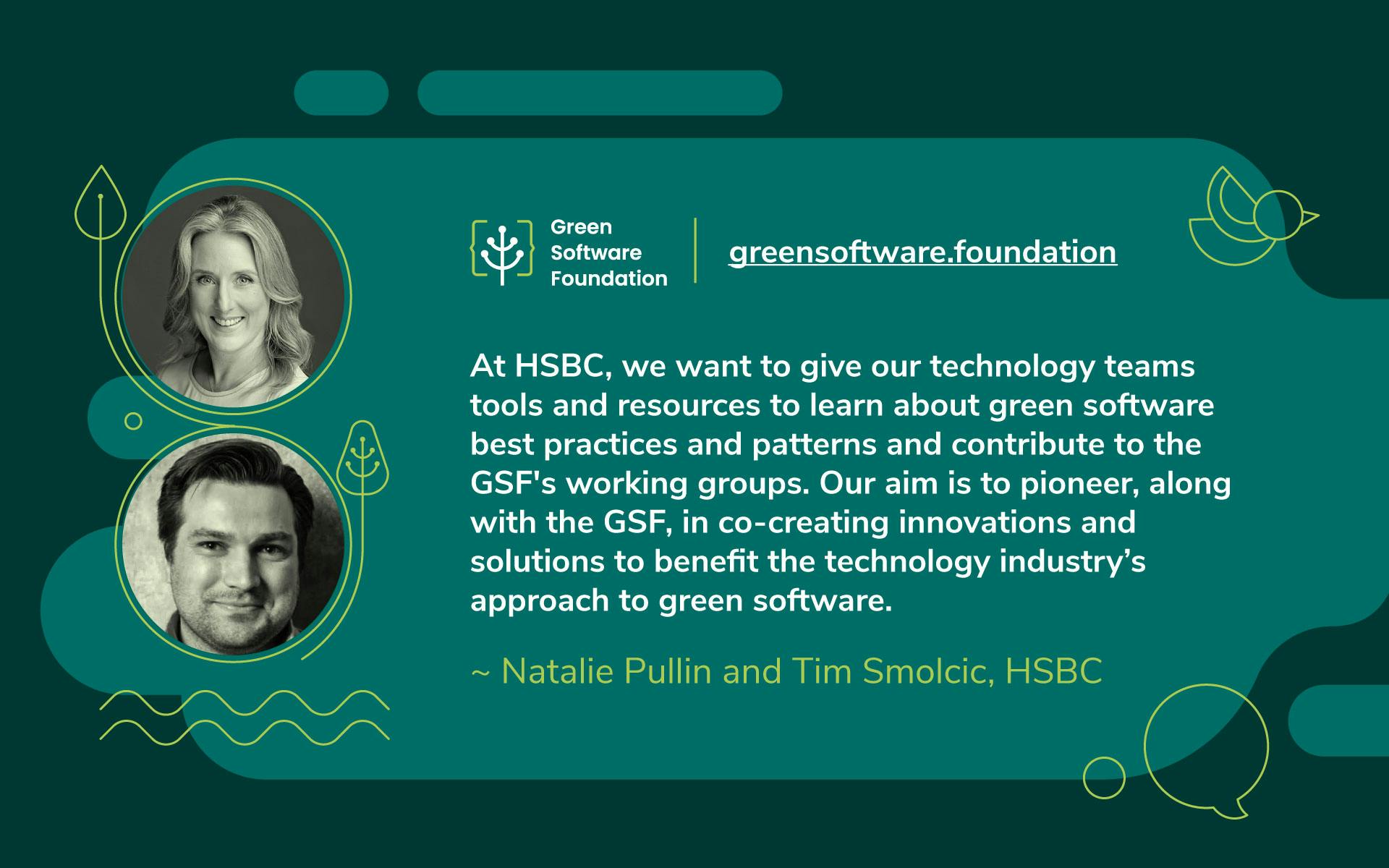Natalie Pullin is the CTO Head of Sustainability at HSBC Technology. At HSBC, Natalie leads the effort to embed sustainability by design into technology practices, products, and services and to reach net zero operations by 2030. In her previous roles as Head of Sustainability Consulting at Fujitsu and Global Sustainability Solutions Lead at Microsoft, she developed strategies that helped organizations turn pledges into progress.
Tim Smolcic is the Director of Tech Strategy at HSBC. He has over 15 years of experience working with global regulators, industry bodies, big tech, and consultancies to deliver strategies and initiatives across highly regulated markets. Recently, he participated in COP28 as a technology thought leader and a member of the UN/ITU Green Digital Action working group.
How does sustainability fit into HSBC's purpose?
HSBC is one of the world’s largest banking and financial services organizations, serving around 42 million customers worldwide through a network that covers 62 countries and territories.
We bring together the people, ideas, and capital that nurture progress and growth. Through all our activities, we strive to help deliver a net zero global economy. And therefore, contribute to creating a better world for our customers, our people, our investors, our communities, and the planet we all share.
Our goal is to achieve net zero in our operations and supply chain by 2030 and our financing portfolio by 2050. Between now and then, we’ll continue working with our clients to help them reduce emissions and scale up low-carbon solutions as we work to reduce our own. We see this as a change over time as businesses and economies progressively move away from high-carbon activities.
Why did HSBC join the GSF?
As we transform our own operations and supply chain to net zero by 2030 or sooner, it’s important that HSBC Technology contributes by embedding green software principles into our business. We want our Technology staff to feel empowered to contribute to the transition to net zero in a practical way through their daily work.
What challenges and opportunities can you share as you look to reduce the environmental impacts of software?
In recent years, there has been a lack of industry-wide best practices and education on how technology can help engineers contribute to net zero. Now, we see the opportunity to join forces with the industry leaders to agree on a starting point and continue to strive for the best and cleanest energy transition across the finance industry.
How do you hope to contribute and benefit from the GSF?
At HSBC, we want to give our technology teams tools and resources to learn about green software best practices and patterns and contribute to the GSF's working groups. Our aim is to pioneer, along with the GSF, in co-creating innovations and solutions to benefit the technology industry’s approach to green software.
This article is licenced under Creative Commons (CC BY 4.0)
